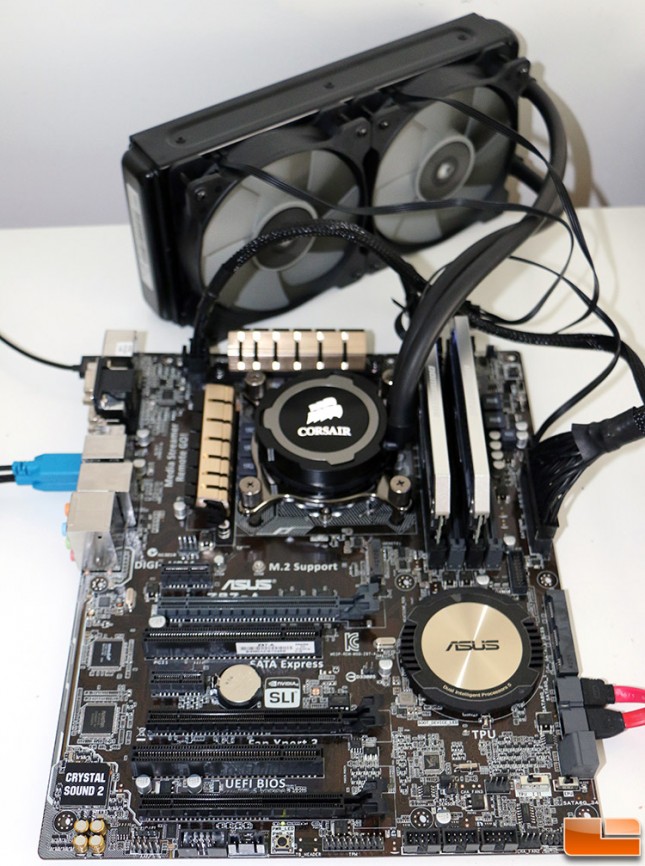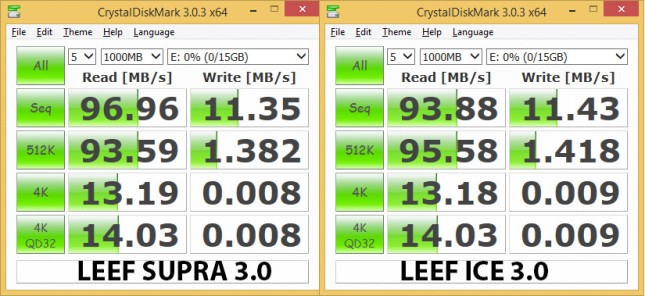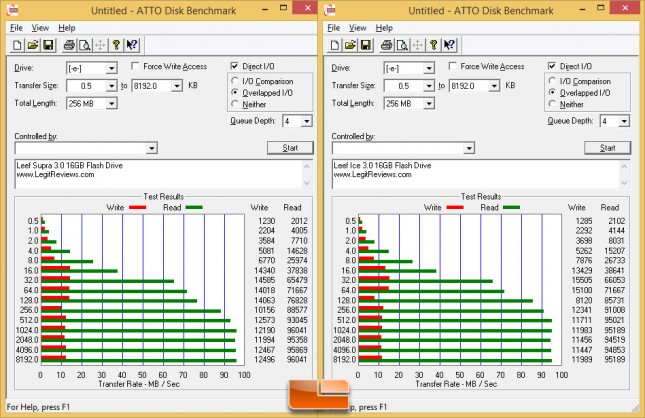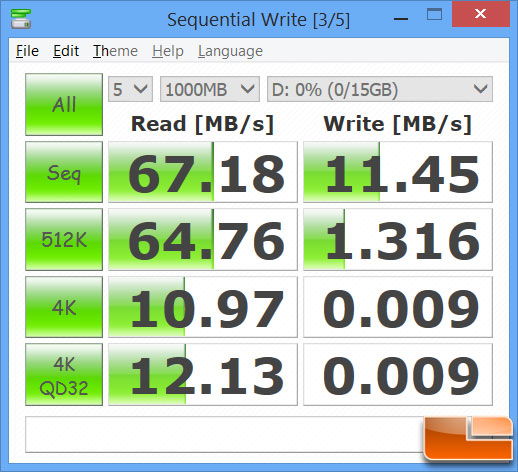Leef Supra 3.0 and Ice 3.0 16GB Flash Drive Review
Leef Ice 3.0 and Supra 3.0 Performance
Before we look at the numbers, lets take a brief look at the test system that was used. All testing was done on a fresh install of Windows 8.1 Pro 64-bit and benchmarks were completed on the desktop with no other software programs running. Windows has had the power option set to high performance.

Intel Z97 Test Bench
| Intel LGA 1150 Test Platform | |||||
|---|---|---|---|---|---|
| Component | Brand/Model | Live Pricing | |||
|
Processor |
Core i7 4770k | ||||
|
Motherboard |
ASUS Z97-A | ||||
|
Memory |
Corsair Platinum 2133MHz 8GB | ||||
|
OS Drive |
Corsair Neutron 240GB | ||||
|
Power Supply |
Corsair AX860i | ||||
|
Operating System |
Windows 8.1 Pro 64-Bit | ||||
CrystalDiskMark 3.0.3 x64
CrystalDiskMark is a small benchmark utility for drives and enables rapid measurement of sequential and random read/write speeds. Note that CDM only supports Native Command Queuing (NCQ) with a queue depth of 32.
Benchmark Results: On our desktop PC that uses an ASUS Z97-A motherboard with Windows 8.1 along with ASUS USB 3.0 Boost drivers we found decent performance numbers with the latest UAS Protocol (UASP) drivers installed! WCrystalDiskMark showed that we were up to around 95MB/s sequential read and around 11MB/s sequential write on both drives. I
ATTO v2.47
ATTO is one of the oldest drive benchmarks still being used today and is still very relevant in the SSD world. ATTO measures transfers across a specific volume length. It measures raw transfer rates for both reads and writes and places the data into graphs that can be very easily interpreted. The test was run with the default runs of 0.5KB through 8192KB transfer sizes with the total length being 256MB.
Benchmark Results: On ATTO with USAP installed we were getting around 95-96MB/s read and 12MB/s write.
What happens if you use this drive on a USB 3.0 platform that doesn’t have USAP installed? We also tested that out the USB 3.0 port on an ASUS UX31A Ultrabook running Windows 8.1 .
Benchmark Results: We got around 67MB/s sequential read and 11MB/s sequential write on CrystalDiskMark, which is around 30MB/s slower than with USAP. Not many systems have USAP installed, so this might be a more realistic number when you are using the drives out and about in the real world. If you want to get the most from your USB 3.0 devices you’ll want to ditch the traditional protocol (BOT) that does just a single command at a time and switch over to the UAS Protocol (USAP) as you can do multiple commands at a time.



